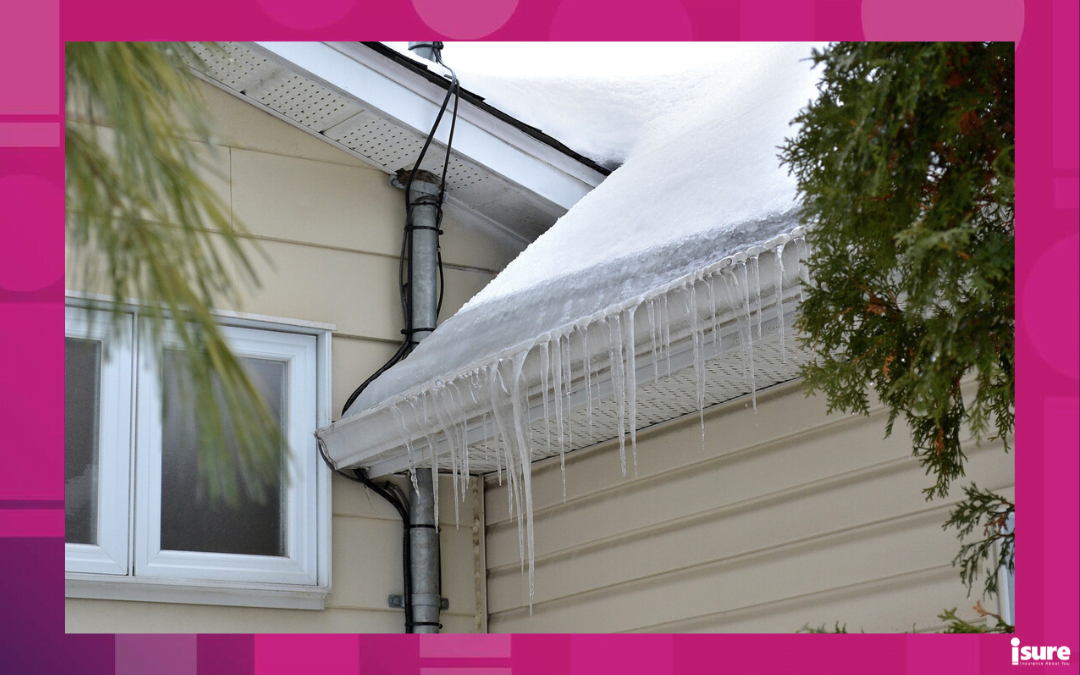When you make a home insurance claim, it’s important to know it’s not a blank slate. There are a few occasions where you can find your insurance company may deny your claim. While most claims do get approval, every now and then claims can get rejected. This is why it is so crucial to know your policy, what it covers and what it does not. Here are 10 reasons why your home insurance claim was declined.
1. Lack of coverage
Standard home insurance typically covers damages due to fire, lightning, and wind. However, there are plenty of exclusions to the policy. Perils like floods and earthquakes require separate insurance, while mould and water backup damages require you to pay extra premiums to add them to your policy. If the cause of damage is an exclusion on your policy’s list of covered events, then you can expect your insurer to decline your claim.
2. You hit your policy coverage limit
One of the most common reasons your insurance company declines a home insurance claim is due to your policy coverage limits. What this means is that you have a limit on how much you can claim, and your claim is more than the limit. To give you an example, let’s say you had $4,000 in coverage for tech items in your home. If $6,000 worth of tech is destroyed, that leaves a shortfall of $2,000. As such, the claim will be declined as you don’t have adequate coverage.
3. Negligence
Negligence is another reason why your home insurance claim was declined. Homes are built to last a long time, but the years can eventually take their toll. Without proper care, things will start to look pretty rough. Almost all homeowners’ insurance policies stipulate that the property should have regular maintenance and kept in good condition. A good example of this is a leaky roof. If one day you find that your roof is dripping, you need to address it immediately. If the insurer finds that the damages for your claim are due to wear-and-tear or negligence on your part, a claim denial is possible.
4. False information on your application
The minute you put in a home insurance claim, an insurer is going to look at your history. They will take a close look at every aspect of your application, and compare it to present day. If an insurer finds any aspect of your application to be untrue, your claim can be declined. When applying for home insurance, it is crucial that you are completely honest. Small errors can lead to big problems!
Any intentional damage by the owner will result in an insurance claim denial.
5. Non-disclosure of facts
Lying about the nature and scope of the damage is, perhaps, the worst mistake you can make when filing a home insurance claim. The insurance company sends their own adjusters to your home to survey the damage. If they find that you have not been entirely truthful or put down inaccurate information on your claims form, you’re likely to see a claim denial decision. Be as accurate and specific as possible because your insurer will always find out the truth.
6. Insufficient documentation of the damage
As a property owner, the onus is on you to prove the validity of your claim to your insurance company. Insurance adjusters will need as much information as possible to pay your claim. Make sure you document the damage or aftermath of the disaster in detail to help prove your case. If you fail to deliver enough proof (documents, photos, videos, etc.) to satisfy the adjusters, your insurance provider may reject your claim.
7. An expired insurance policy
One sure reason that your home insurance claim was declined is if you let your policy expire. If you’re not careful and renew a policy, you can put yourself in a terrible position. Should you accidentally let your policy expire, a claim will be declined when you attempt to submit. Generally, this situation is entirely avoidable. Insurers inform you about the policy renewal in advance. It is important to keep a record on a calendar of all your renewal dates to avoid this situation.
8. Missing the filing deadline
Each insurance company has their own set of time sensitive requirements for filing and documenting home insurance claims. No matter how valid your claim is, denial is possible if you miss the filing window. Normally, filing is doable within 180 days to a year, depending on your policy. If your home sustains damage from a peril that has coverage, notify your insurer and start the claims process. A claim denial because you didn’t file on time is an easily preventable scenario.
9. Non-payment of premiums
Non-payment of premiums can cause your policy to lapse. That means missing payments on your home insurance or paying your premiums late can result in your insurance provider being able to deny your claim. Keep up with your home insurance payments to avoid losing coverage when you need it the most.
Having plenty of missed or late payments on your record can damage your credit rating and lead to more expensive insurance premiums in the future.
10. You run a home business
One thing some fail to know is that home insurance does not cover your home-based business. To have coverage, you will need a home business insurance policy. You can get a quote from one of our isure brokers. Failing to have proper business insurance is not a good idea. If someone gets hurt while conducting business with you, your home insurance claim will be declined. If you’re conducting business from home, you need to get proper business insurance.
Tips for filing a home insurance claim
- Let your insurance company know right away: If you plan to file, contact your insurer as soon as possible after the incident to start the process.
- Have a home inventory list: Having a spreadsheet with all details of your possessions and receipts to verify what you spent can be invaluable if you suffer a loss.
- Get a second opinion: Even if the insurer provides a contractor, you can still use independent contractors to get a second opinion and evaluate repair quotes.
- Keep accurate notes: Keep a record of all communications with your insurer. This will ensure there are no discrepancies.
- Get advice: Speak with your isure representative about what happened. We can provide you with advice and advocate on your behalf. Settlements are negotiable, so be well-informed before you sign.
Deciding whether or not to file a claim?
According to FSCO, if you’re unsure whether you should file a claim, ask yourself the following questions:
- How much is my deductible? For example, if your deductible is $400, and your replacement chair is $350, you’re better off simply paying for the new chair. Filing a claim won’t bring you any benefit, and your premium may increase.
- What is the direct cause of the damage? The insurance company may cover insured perils, but not if the direct cause was a result of negligence.
- Is there damage to someone else’s property or person? If there is an injury or damage to a third party, you are required under your policy to report it.
- Don’t call your agent or broker to ask if you should make a claim. Once they know you’ve had a problem, they may increase your premiums, deny a future claim, or cancel your policy. This will make it more difficult for you to get insurance in the future.
What can I do if my home insurance claim is declined?
- Take a second look: Check your submission against your policy to make sure your insurer has grounds to deny it or if you made any errors.
- Look at the whole picture: Review the reasons why your insurer denied your claim. Reach out to one of isure representatives to go over the decision with you.
- Second opinion: Although your claim is declined, you have the right to appeal the decision. An second independent appraisal can be done.
- Contact the General Insurance Ombudsman Service: You can get free advice and learn more about your options for filing a complaint.
Our insurance brokers are here to help you find the best insurance coverage for your home. Feel free to call us at 1- 877-514-7873 to speak to one of isure’s brokers.




